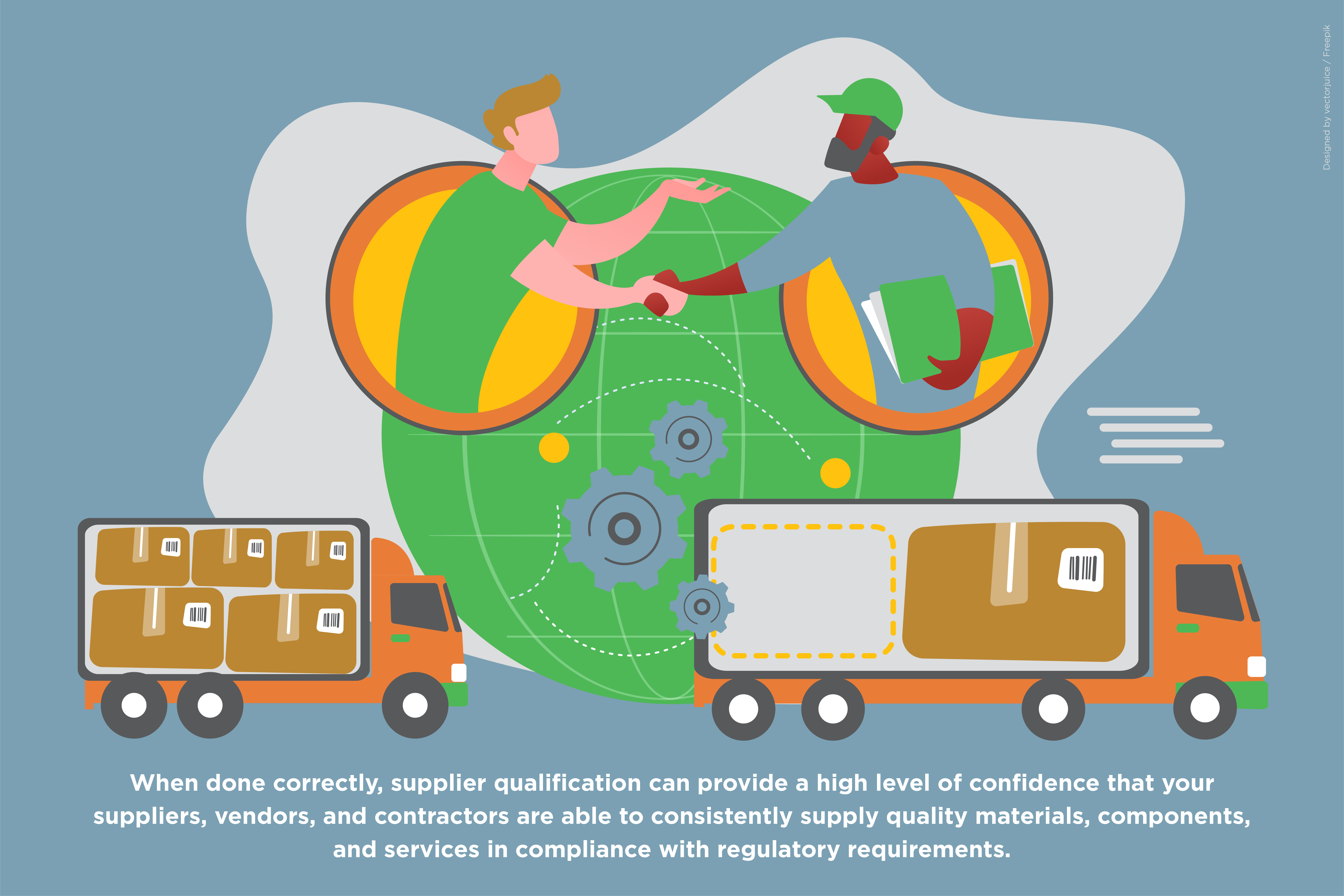How to improve supplier compliance, visibility, risk management, and sourcing decisions
Today’s procurement organizations face a daunting array of challenges when it comes to gathering and managing the supplier information necessary for supporting their overall business objectives. Beyond simply assessing suppliers’ ability to deliver goods and services, it’s also essential to evaluate their financial stability, the potential for supply disruptions, environmental/sustainability initiatives, and their unique compliance and regulatory requirements.
As a result, effective supplier qualification involves more than auditing. It should also be viewed as an effective risk-assessment tool. When done correctly, supplier qualification can provide a high level of confidence that your suppliers, vendors, and contractors are able to consistently supply quality materials, components, and services in compliance with regulatory requirements. At the same time, an integrated supplier qualification process should also identify — and mitigate — the associated risks of materials, components, and services.

The Oracle Solution
With those goals in mind, Oracle Supplier Qualification Management functions as a single, cloud-based system for improving your view of the compliance, data accuracy, and visibility of each supplier in your supply chain network.
Here’s how it works:
Oracle Supplier Qualification Management allows you to build questionnaires to gather supplier information that is critical to your business. These online surveys can capture information from suppliers directly, as well as from internal stakeholders. The customizable questionnaires support conditional questions and question response types such as multiple-selection lists.
You can then organize related questions into qualification areas and assign specific outcomes to your suppliers after evaluating the information you receive. Oracle Supplier Qualification Management also allows you to score suppliers automatically based on rules you create. These qualifications have an effective period; as the expiration date approaches, the solution automatically alerts you to initiate timely renewals and re-qualifications.
Oracle Supplier Qualification Management comprises four nodes: Questions, Qualification Area, Qualification Model, and Initiative.
Questions
Questions are the building blocks of your supplier qualifications tools. As you create a repository of individual questions, they’re stored in the Question Library. You can later use questions in the Question Library to create the Initiatives you use for qualifying your suppliers.
The questions in your repository are reusable and available to other supplier qualification managers. Additionally, category managers can open and use questions in the Question Library as requirements in sourcing negotiations. By using predefined questions, you can quickly build your initiatives without having to redefine commonly used questions.
Qualification Area
Qualification areas are containers for your questions. You use a Qualification Area and its questions to evaluate a particular aspect of a supplier.
After adding one or more Qualification Areas to an Initiative, you use the questions in the Qualification Areas to create a questionnaire. You then send the questionnaire to the supplier and any internal responders for a response. Once all the responders have submitted replies, you and any other evaluators review the answers. If all evaluators approve the responses, a qualification for the supplier is created for that Qualification Area.
Qualification Model
Qualification Models are containers for Qualification Areas. You use a Qualification Model and its Qualification Areas to perform a comprehensive evaluation of a supplier, known as an assessment.
When creating an assessment Initiative, you specify a single Qualification Model containing one or more Qualification Areas. The questions contained in the model’s Qualification Areas are used to create the questionnaire that’s sent to your suppliers and any internal responders. The application creates draft qualifications and assessments when you launch the Initiative.
Initiative
An Initiative is the main tool you use to create, manage, and track your qualifications and assessments of suppliers. When you launch your Initiative, its questionnaires are sent to its suppliers and internal responders for their responses. As soon as responders have submitted their responses, users can review the responses and either accept or reject them. You can use those supplier qualification and assessment outcomes in many ways when performing procurement activities.
Oracle Supplier Qualification Management enables two types of Initiatives: Qualification Initiatives and Assessment Initiatives. Qualification Initiatives are used to evaluate a particular function, capability, or aspect of a supplier. Assessment Initiatives provide a more thorough and comprehensive evaluation of the supplier. Assessment Initiatives evaluate the supplier in both discrete areas and at the supplier level. Overall, the Supplier Qualification Management lifecycle involves the following stages:
- Create Initiative
- Respond to Questionnaire
- Accept Response
- Evaluate Response
- Manage and Requalify
By working with Inspirage to implement Oracle’s Supplier Qualification Management system, procurement organizations of all shapes and sizes can now leverage a single tool to address their most important business priorities. That list includes complying with corporate policies, improving visibility to key supplier characteristics and capabilities, reducing the risk of supplier-related disruptions, and improving sourcing decisions by considering relevant supplier factors.
Inspirage can help
As the Integrated Supply Chain Specialists, with recognition from Gartner, IDC, and winners of Oracle’s ERPM (Enterprise Resource Planning & Management) & Supply Chain Management Cloud Partner of the Year (Global) awards in recent years, Inspirage is uniquely qualified to be your success partner. Whether you are upgrading your on-prem system or have decided to move to the cloud where continuous improvement is built-in, our team is prepared to guide you on your transformational journey. Contact us to learn more.
